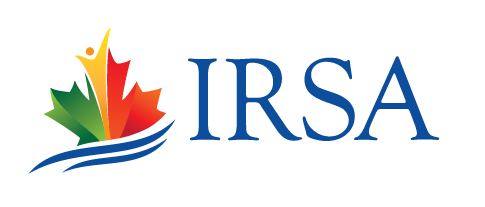Knowing Your Rights
Conflict or Disagreement with Employer
If you think your employer may have broken an employment law, or if you want to file a claim, phone the department responsible for employment standards in PEI, toll free. When you call, say the name of your language in English (for example Spanish). They might be able to help you speak to an interpreter in your language. More information
Filing a Claim
If your employer has not paid you all the wages you have earned, or if they are not following employment laws in other ways, you can file a claim. Employment Standards has information on workers’ rights on its website and you can file a claim online. More information
If you have a problem with your employer, you may contact the following groups for help:
- Cooper Institute
- Immigrant and Refugee Services Association
- Community Legal Information
- Your consulate
You can make a confidential report at the Service Canada Confidential Tip Line, toll free.
Workplace Health and Safety
If you have questions about workplace health and safety or if you want to report a problem, phone the Workers Compensation Board toll-free or call the Occupational Health and Safety 24hr Emergency Line (more information). If your life is in danger, call 9-1-1.
Passport or identity documents
It is illegal for your employer to take your passport or other identity documents from you.
Some workers decide to give their passports to their employers to keep them safe. Only do this if you trust your employer. They must return your documents to you whenever you ask for them.
In general, you should ask someone to store your documents for you only if you trust that person and if you can access your documents easily at any time.
Transfer to Another Farm
You may be transferred from one farm to another, but only if you agree to be. Employers often transfer workers if they do not have any more work for them at the current location.
Your employer can only transfer you with your explicit consent. There is a 7- day trial period at your new farm if you have been transferred.
You do not need to change your work permit if you have been transferred. However if you are from the Caribbean, you must sign a transfer contract.
Termination and Layoff
If you lose your job before your contract ends, you have the right to stay in Canada until your work permit expires. You may want to ask advice from the Immigrant and Refugee Services Association, Cooper Institute, or your Consulate in Canada.
If you have been employed for at least 3 months continuously, your employer must give you:
- Advance written notice, or
- Pay instead of notice, or
- A combination of both
These rules do not apply if your employer terminates employment for "just cause" (termination due to employee misconduct). Also, in this situation, you may have to pay for all or part of the air fare back to your country.
Your employer is not allowed to fire you for the following reasons:
- Voicing concerns about health and safety violations
- Refusing to do unsafe work
- Reporting your employer to Employment Standards
If you were dismissed for any of the above reasons, this would be considered Discriminatory Action, and you should contact Employment Standards.
When you stop working for your employer, they must provide you with a Record of Employment (ROE). This is an important document because it includes information on your hours worked and why you were let go. You need this information if you apply for Employment Insurance (EI) benefits. Keep your ROE in a safe place. If your employer does not give you a ROE, call Service Canada for help toll-free.
Fees
Employers
In the SAWP, employers cannot charge workers for the costs of recruiting them and or ask workers to pay for the LMIA. It is always the employer’s responsibility to pay for recruitment and the LMIA.
Recruitment
Prince Edward Island does not have rules limiting agencies who recruit workers. However, there are still things that you can do to protect yourself, and resources you can access if you are being charged unfair fees.
First, to ensure the legitimacy of a recruitment agency, you can contact the embassy of the country where you plan to work and ask them to verify that an agency is trustworthy. Also, you can refer to current known work permit fees, and remember that you are not required to pay for the LMIA fee.
If you are in a situation where you are being charged unfair fees to get or keep a job, try to collect any documents that show what kinds of fees you have paid, such as copies of contracts, receipts, email exchanges, or sound/video recordings of conversations if you were paying in cash. You can also reach out to community organizations such as Cooper Institute or PEI Employment Standards for support.
Another option is to report your employer and the violation through the Service Canada website. This may help prevent the same thing from happening to other workers.
Discrimination and Harassment
Discrimination
The Canadian Human Rights Act and the Prince Edward Island Human Rights Act prohibit actions or words that are unwelcome or hostile and linked to grounds such as race, sex, sexual orientation, gender identity, gender expression, and country of origin. If you are experiencing discrimination around your employment or your accommodations you may be able to submit a human rights complaint.
Harassment
As of July 2020, all employers in PEI are required to have a harassment policy, including sexual harassment. Workplace harassment is any inappropriate actions or comments towards a worker that the person knew, or should know, would make the worker feel to be humiliated or intimidated. Harassment does not include normal comments from supervisors about work-related behaviour or performance. You can find more information about the workplace harassment regulations from the Workers Compensation Board of PEI.
Unions and Collective Bargaining
You have the right to join a union or participate in collective bargaining under the PEI Labour Act or other collective bargaining legislation that applies to your work. In Canada, the Charter of Rights and Freedoms protects your right to join a union. You cannot lose your job or get deported for talking to union representatives or organizing your workplace.
Human Trafficking
Human trafficking is when someone is recruited, transported, transferred, or held for the purpose of exploitation. This can happen within the same country or across international borders. Human trafficking can happen to women or men, girls or boys. It can involve forced labour, sexual exploitation, forced marriage, and organ removal.
Signs that you may be a victim of human trafficking:
- You are not doing the job you were promised, or when you arrived in Canada you found out it did not exist.
- You are working very long and/or unusual hours, or, you are forced to be available to work all the time.
- You are restricted on what you can do or where you can go.
- You receive very little or no pay for your work.
- Your passport and other identity documents have been taken away from you.
- Your employer or recruiter has threatened you or your family.
- You owe a large or increasing debt to recruiters or your employer and you are unable to pay it off.
Most victims of human trafficking experience more than one of these conditions.
How to get help if you think you have been trafficked:
- Get help and support from the Canadian Human Trafficking Hotline.
- Call Crime Stoppers.
Temporary Resident Permits
Victims of human trafficking can apply for a temporary resident permit (TRP). This permit is valid for 180 days and can be renewed. You can make an appointment at an Immigration, Refugees and Citizenship Canada (IRCC) office to apply for this permit. IRCC officials will interview you to decide if you are eligible. Generally, your application is more likely to be successful if it includes a police report. There is no application fee if you are a victim of trafficking.
You do not have to testify against your trafficker to get help or to apply for a temporary resident permit. Applying for a temporary resident permit can be a complex process. It is a good idea to get help with your application. You can ask for help by contacting Cooper Institute or Immigrant and Refugee Services Association.
Police
You have rights when dealing with the police. Generally, police cannot:
- Search you without a reason.
- Ask for blood or saliva samples unless there is a reason to do so and you have given permission.
- Detain or imprison you without a reason.
- Enter your home without a warrant.
If you are questioned or arrested by the police, you can ask for a lawyer. The police should stop questioning you once you ask for a lawyer. Anything you say to the police before or after an arrest can be used by them as evidence.
If police find out that you have overstayed your work permit or have violated the conditions on your work permit, they may tell the Canada Border Services Agency (CBSA).
Racial Profiling
Some migrant workers report experiencing racial profiling from police. Racial profiling is when someone is treated differently because of their race or ethnicity, instead of reasonable suspicion. Racial profiling is not allowed under the Prince Edward Island Human Rights Act.
If you believe that you are experiencing racial profiling, know that you have the right to speak with a lawyer and that you do not have to give any saliva or blood samples unless the police have a specific reason to suspect you. Write down all the details of what happened such as the date, time, location, and the people involved. You may want to get support from the Community Legal Information, Immigrant and Refugee Services Association, or Cooper Institute to file a complaint with the Office of the Police Commissioner.
You can find out more about your rights with the police in the document titled Police Powers: Stops and Searches from Ontario.
Canadian Border Services Agency (CBSA)
The Canada Border Services Agency (CBSA) is the government department that enforces immigration laws. They can arrest and detain people who do not have valid work permits or who have violated the terms of their work permits. The CBSA is different from the police.
If you open the door of your home to a CBSA officer, they can search your home or make arrests. The only times CBSA officers can enter your home without permission are if they have 2 warrants:
- An immigration arrest warrant, and
- A special entry or feeney warrant
You can speak to CBSA officers through the door and ask them to pass you the warrants under the door. If they have the two warrants and you do not let them in, they may force themselves in or they may come back later. CBSA officers are not always in uniform – sometimes they wear plain clothes.
If they do not have the 2 warrants, you do not have to talk to the CBSA officers. If you do not want them to come in, do not open the door.
A CBSA officer could arrest you if you don’t have full immigration status when you are outside your home. Unless you are driving a car, riding a motorbike, or riding a bicycle you don’t have to show identification. However, you may want to identify yourself since they can arrest people if they are unsure of their identity. Once you have identified yourself, you may not want to answer any other questions they ask you.
More information on dealing with CBSA can be found in the resource Migrants: Know Your Rights from No One Is Illegal - Toronto.












